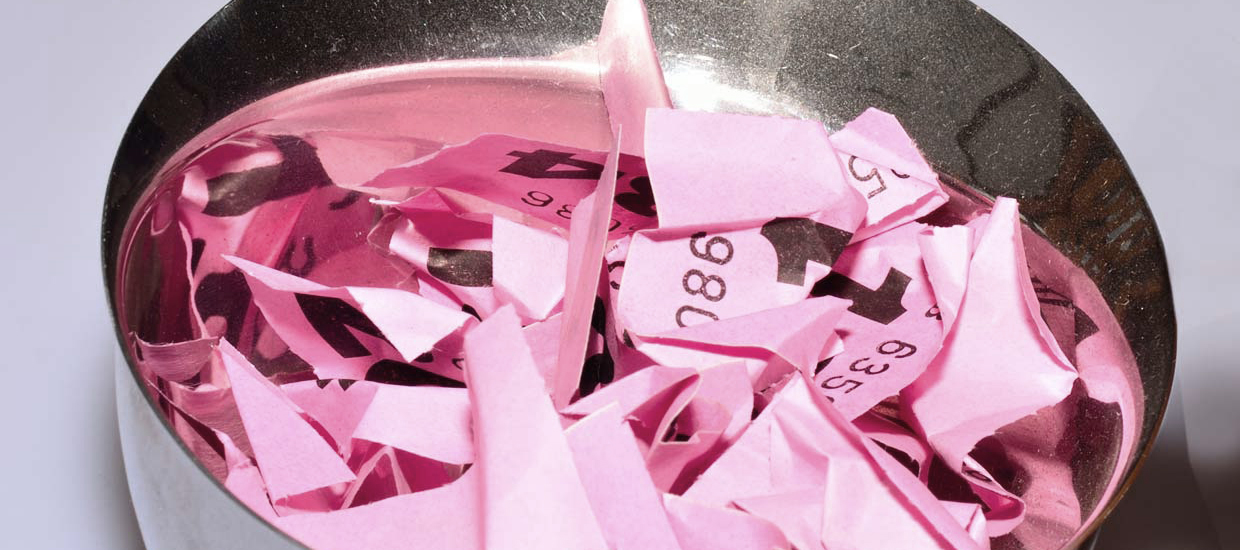Running a raffle
Running a raffle at events can boost profits, whilst also building links with local businesses. A raffle is a type of lottery, however, and you may need a licence to run one. We asked the Gambling Commission – what do schools need to know?

Image: Pauws99/thinkstock.co.uk
What is a lottery?
A lottery is a kind of gambling which has three essential ingredients:
- you have to pay to enter the game,
- there is always at least one prize,
- prizes are awarded purely on chance.
A typical ‘small society lottery’ is a raffle where players buy a ticket with a number on it. The tickets are randomly drawn and those holding the same numbered tickets win prizes. Another version is a sweepstake – for example where the participants pay to randomly pick a name in a ‘guess the name of the teddy’ game. The person who guesses the winning name wins the teddy.
An ‘incidental non-commercial lottery’ doesn’t require any permissions or licences. These are held at non-commercial events, such as school fetes. All ticket sales and draws must take place during the event.
A ‘small society lottery’ requires a licence from your local authority. The society in question must be set up for non-commercial purposes, ie charitable.
Do we need a lottery licence to run a raffle at our fair?
If running a raffle where tickets are NOT sold before the event, this falls under the terms of an ‘incidental non-commercial lottery’. As such, you will not require a licence or any specific permissions. However, you must adhere to the following rules:
- All tickets must be sold at the location during the event and the result made public while the event takes place.
- The promoters of the lottery cannot deduct more than £100 from the proceeds in expenses incurred, such as for the cost of printing tickets, hire of equipment, etc.
- No more than £500 can be spent on prizes (but other prizes may be donated) and the raffle cannot involve a rollover of prizes.
If selling tickets prior to the event, this falls under the terms of a ‘small society lottery’ and a licence is required.
Can we sell raffle tickets prior to the event?
If you’re planning to sell tickets prior to the event and the proceeds (from ticket sales) for a single draw are not anticipated to exceed £20,000 then you must register with your local authority as a ‘small society lottery’. You would need to pay a small fee and comply with a range of regulatory requirements including providing entrants to the lottery with tickets stating specific information (see below) and preventing children under the age of 16 from participating. If the proceeds for a single draw were to exceed £20,000 you would require a ‘large society lottery’ licence from the Gambling Commission.
Are there specific details that MUST be printed on our raffle tickets?
There are no specific requirements for details to be printed on tickets sold in an ‘incidental non-commercial lottery’.
For a ‘small society lottery’ (tickets sold in advance), tickets must show the name of the promoting society (and the purpose of the lottery), the ticket price, the name and address of the organiser and the date of the draw.
We have alcoholic prizes – are there any other licence requirements to consider?
Not from a lottery perspective. Obviously alcoholic prizes cannot be given to under 18s, but you would need to check with your local authority for any further requirements. If someone who appears to be under 18 wins an alcoholic prize, checks should be made to verify their age and good practice is to withhold the prize until it can be given to someone of 18 or over.
As long as your prizes are in sealed containers a Temporary Event Notice (TEN) would not be required, however you may need a TEN for other attractions at your event or if your event itself is considered ‘regulated entertainment’.
Can children buy (or sell) raffle tickets?
They can in an ‘incidental non-commercial lottery’ but children under the age of 16 cannot sell tickets or participate in a ‘small society lottery’.
Do we need to be a charity in order to run a raffle?
You do not need to be a registered charity to run a raffle/lottery, however they cannot be run for private or commercial gain. You will need to set up as a society if you are looking to be registered or licensed as a ‘small society lottery’.
Does every ticket have to be sold for the same price?
Raffles run under the terms of a ‘small society lottery’ must show the price on the ticket and all tickets must cost the same. That way, everyone has the same chance of winning for the same outlay.
Tombolas normally fall under the terms of an ‘incidental non-commercial lottery’. Although there are other rules for this type of lottery, the only requirements regarding tickets are that they are sold at the place where the event is held, while the event is taking place. Under the Act there is no reference to ticket pricing so it is acceptable to, for example, charge 50p for one ticket or £1 for three tickets. Similarly, if during the latter stages of the event there were still prizes left, there are no restrictions on reducing prices of tickets further in order to sell them.
For more information
More details about running a raffle for fundraising can be found on the Gambling Commission website. Or contact the licensing officer at your local authority.
More on events and activities
- Read more step-by-step event guides
- Virtual fundraising
- Earn while you learn – educational fundraisers
